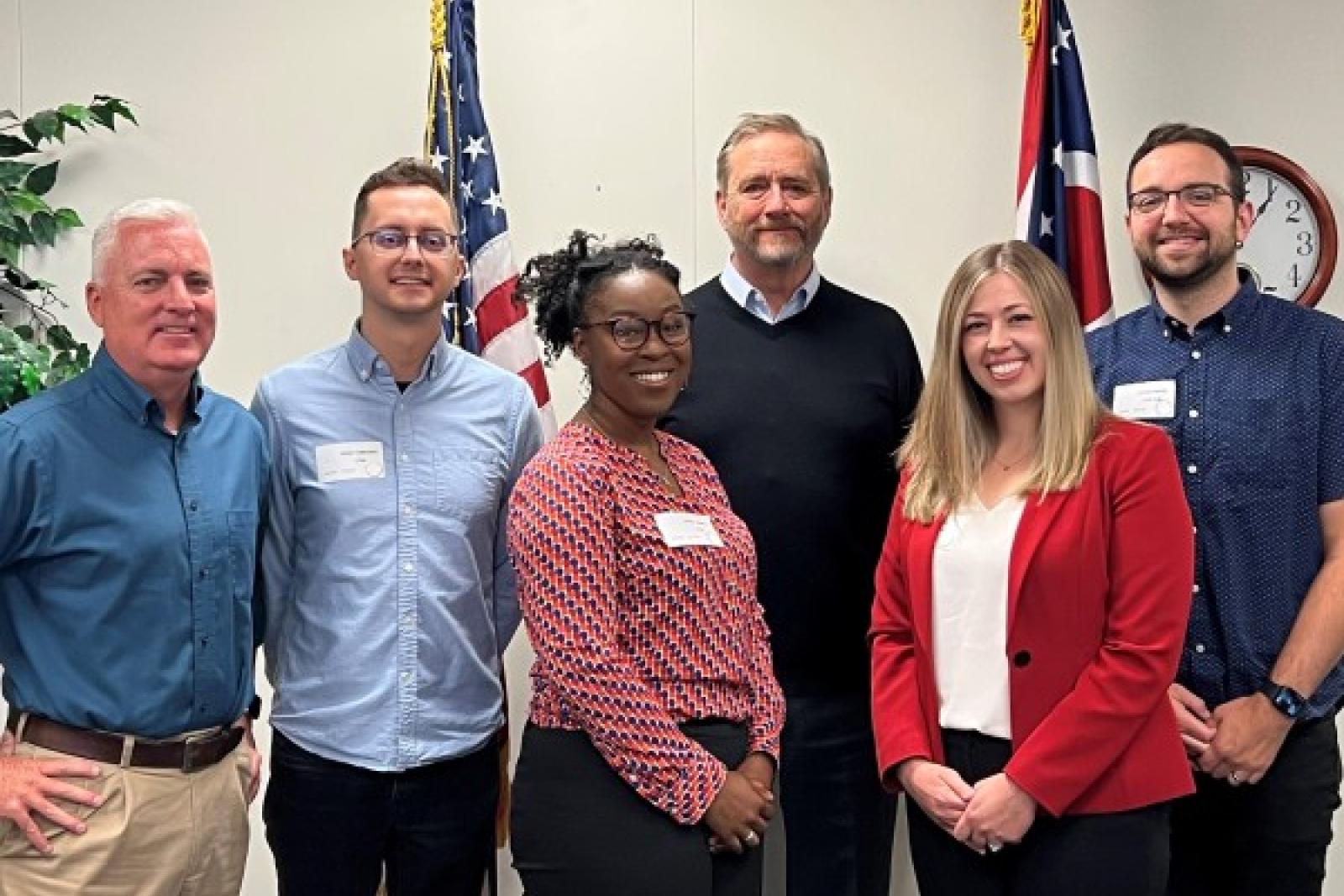College of Pharmacy faculty partner with Ohio Attorney General to launch opioid prevention and education course

Each day, the opioid crisis continues to upend lives and devastate communities in Ohio. Stifling further development of the crisis and saving lives starts with the proper training of health care professionals.
In partnership with the Ohio Attorney General’s office and faculty from health science programs across Ohio, The Ohio State University College of Pharmacy designed a novel interprofessional program to teach health care students about substance use disorders (SUD). A pilot of the program—consisting of asynchronous and synchronous virtual components—was run in spring 2022 with positive feedback from participants.
How it started
The Ohio Attorney General’s Scientific Committee on Opioid Prevention and Education (SCOPE) surveyed health science programs around the state and identified a gap in health care provider training for SUD and a need for standardized educational experiences.
In response, Jon Sprague, RPh, PhD, director of science and research for the Ohio Attorney General’s Office, appointed a team of over 30 academic experts from multiple health science programs in Ohio. Kelsey Schmuhl, PharmD, assistant professor of pharmacy practice and science at the Ohio State College of Pharmacy, co-chaired this committee with Dr. Sprague and led the development of the learning experience.
“We know that when health care professionals work collaboratively, patient outcomes improve,” Dr. Schmuhl said. “I am excited to have the opportunity to work with students across a variety of disciplines to ensure they feel comfortable treating and caring for patients with SUD and they understand the important roles that each member of the team plays in this work.”
Dr. Schmuhl enlisted Ohio State alumna and postdoctoral scholar T’Bony Jewell, PharmD, along with Steven Nagel and Ross Tamburro from the College of Pharmacy’s Office of Educational Innovation and Scholarship (OEIS) instructional design team, to assist in the design, development and implementation of the asynchronous course and virtual symposium that featured an escape room.
About the experience
During the pilot experience, participating students engaged in a six-week asynchronous course followed by a three-hour synchronous virtual symposium that concluded with the collaborative virtual escape room learning experience.
The asynchronous course featured six online modules that covered various topics related to SUD and were intended for students of professions like pharmacy, nursing, social work and medicine, regardless of how far along a student is in their program. Each of the six modules focused on one of the following topics:
- The neurobiology of opioid use disorder (OUD)
- Treatment of OUD
- Adverse childhood experiences
- Social determinants of health
- Motivational interviewing
- Ethics and stigma
After completing the asynchronous modules, students applied their knowledge to a complex patient case during the symposium. Ohio Attorney General Dave Yost welcomed them and explained how their participation in the program allows Ohio to better address the opioid epidemic.
At the end of the symposium, students were assigned to an interprofessional team to complete team-building exercises prior to starting the virtual escape room experience, where students must combine their professional skill sets to work through a series of complex activities and ultimately save the patient. The event lasted approximately three hours with time for a debriefing session afterward.
“The escape room model allows the students to critically think through the experience of comprehensively treating a patient with SUD,” Dr. Jewell said. “It gives us the opportunity to weave together the many aspects of taking care of a patient navigating the health care system, from identifying causal factors to understanding barriers to getting treatment and staying substance-free.”
Students at partnering institutions received access to the asynchronous modules in January 2022, providing ample time to complete the modules prior to the symposium in April. The virtual symposium with the escape room event were hosted four times that month to provide flexibility for students to participate and work around their many competing priorities.
“The committee agreed that a virtual event would allow us to reach as many health care professional students across the state as possible, and the escape room ensured participant engagement in the experience,” Dr. Schmuhl said.
In total, 276 students completed the asynchronous modules and 228 of those students also completed the virtual symposium with the escape room experience. Students who completed both the modules and escape room were awarded a certificate of completion from the Ohio Attorney General’s office.
Next steps
In early June, Dr. Schmuhl and Nagel received a $20,000 grant from Ohio State’s Office of Outreach and Engagement and a $2,000 EchoImpact grant from Echo360 to expand the program’s reach by including the College of Social Work and adapting for the BuckIPE program at Ohio State. The team has begun the next phase of work to offer the program to wider audiences, including fourth-year medical students at Ohio State.
Dr. Schmuhl, Nagel and Tamburro will give a presentation on the pilot program during an impact practice session this fall at the Association for Educational Communications & Technology’s 2022 International Convention.